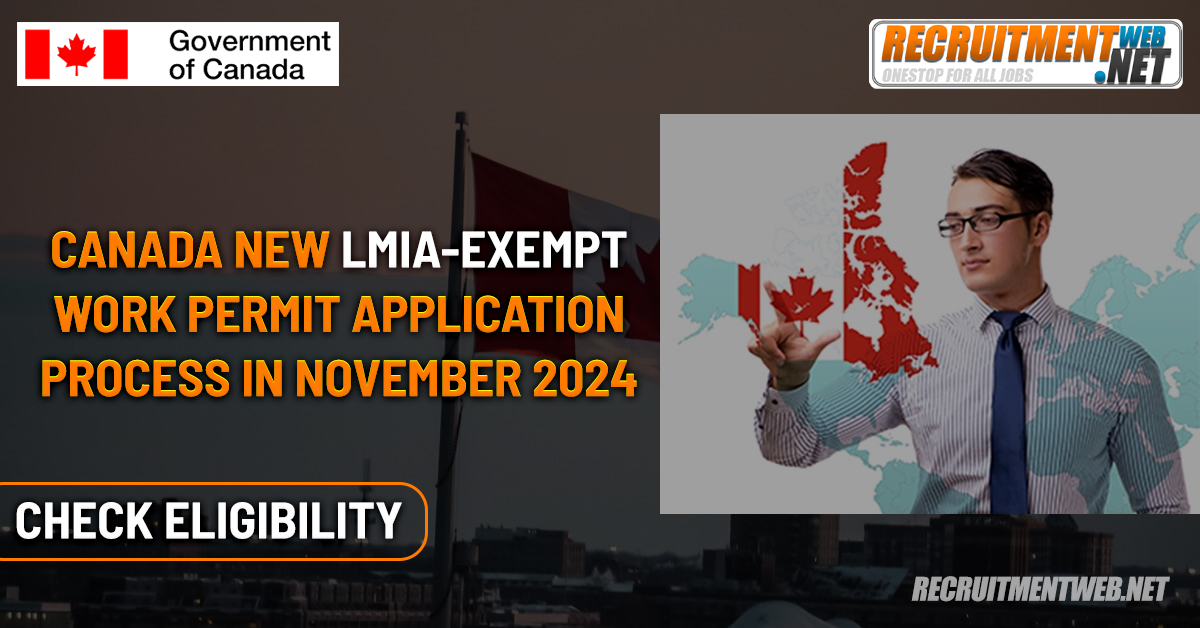Overview of Canada Work Permit Rules Changes
Canada Work Permit Rules Changes In November 2024, Canada introduced a streamlined LMIA-exempt work permit process, aimed at attracting highly skilled workers to support key economic sectors without requiring a Labour Market Impact Assessment (LMIA).
Understanding LMIA and LMIA-Exempt Categories
The Labour Market Impact Assessment (LMIA) is a document some employers need to hire foreign workers, indicating no Canadians or permanent residents are available for the job. However, certain permits don’t require an LMIA under Canada’s International Mobility Program, making hiring faster for key sectors like tech.

Eligibility Criteria for LMIA-Exempt Work Permits (November 2024)
Applicants must have a job offer from an employer participating in Canada’s Innovation Stream or high-growth sectors. The employer must fulfill specific obligations, like the employer compliance fee.
| Step | Details |
|---|---|
| Employer Action | Submit a job offer via the Employer Portal, specifying details under National Occupational Classification guidelines. |
| Applicant Action | Create an account on Canada’s immigration website and submit personal information and documents online. |
| Compliance Fee | Employers pay a compliance fee to ensure adherence to Canadian employment standards. |
Sector-Specific Implications and Opportunities for Canada Work Permit Rules Changes
Canada’s LMIA-exempt permits target high-growth sectors, including technology, healthcare, agriculture, legal technology, and customer service, supporting its role as an innovation hub.
Tech and Innovation Sector
The tech sector benefits from access to global talent for software development, AI, and cybersecurity. This supports Canada’s Tech Talent Strategy.
Healthcare and Primary Agriculture
LMIA-exempt permits simplify international recruitment for healthcare and agriculture, meeting growing sector demands.
Compliance and Fees
Employers must meet Canadian standards in job offers and pay a compliance fee upon submission. Fee information should be verified to avoid processing delays.
| Required Documents | Details |
|---|---|
| Identification | Passport and previous work permit information (if applicable) |
| Qualifications | Certificates or licenses related to the job |
Potential Challenges and Labor Market Considerations
Consider factors like unemployment rates and TEER classification to align applications with Canadian labor demands. Sectors with critical shortages may favor LMIA exemptions.
Understanding Processing Times and Employer Compliance of Canada Work Permit Rules Changes
Average Processing Times
Processing times for LMIA-exempt work permits vary. Check IRCC for the latest timelines, particularly for Tech Talent Strategy applications.
FAQ’s About Canada Work Permit Rules Changes
What are the eligibility criteria for the new LMIA-exempt work permit in Canada?
Generally, you need a job offer from a Canadian employer in a designated sector such as tech or healthcare.
Canada Work Permit Rules Changes
The November update prioritizes the Innovation Stream for faster processing in tech and other high-demand sectors.
Canada Work Permit Rules Changes
Processing times are typically shorter but vary. Check the IRCC website for current estimates.
What documentation is required to apply for an LMIA-exempt permit?
A valid passport, job offer, and qualifications related to the position.


